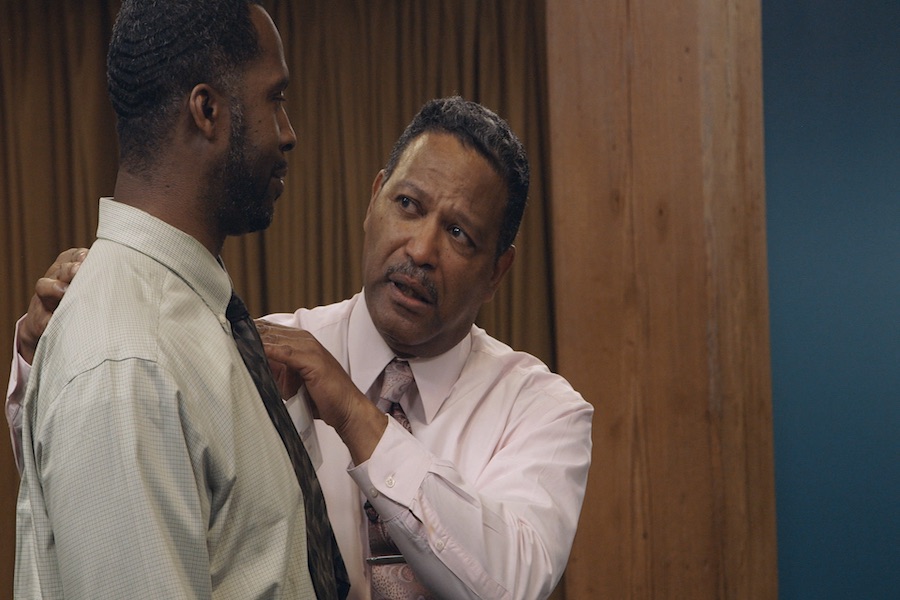“We’re going to make an impact this year”: Chicago International Film Festival optimistic about virtual premieres
Courtesy of Siskel/Jacobs Production
A still from Siskel/Jacobs Productions’ latest documentary. “The Road Up” is set to premiere Sunday, Oct. 18.
October 15, 2020
Wednesday marked the first day of the Chicago International Film Festival (CIFF), North America’s longest-running film competition. CIFF is just one of many events in the entertainment industry forced to adopt a predominantly online presence amid public safety concerns.
Though streaming viewership experienced a surge in March, the entertainment industry still faced substantial losses this year. Most recently, movie theater giant Cineworld placed a temporary screening moratorium on over 600 of its locations worldwide.
However, virtual film festivals have fared much better than other entertainment outlets, and their success is a sign that the Chicago International Film Festival will have a substantial turnout, artistic director Mimi Plauché said. She said the festival might even see a large amount of sales right before the individual films screen, rather than in the days or weeks before like prior years.
“As far as ticketing sales goes, I think we’re exceeding our expectations,” she said. “(Attendees) don’t necessarily find (the movies) in advance. They are going to buy them the moment that they’re ready to watch them.”
Because films must be submitted for judging far in advance, the festival saw an increase in submissions this year since most directors completed their productions before the pandemic forced an industry-wide shutdown. However, Plauché said she expects the “fallout” to adversely affect the festival’s submission pool next year.
Although CIFF is venturing into uncharted remote territory — virtual screenings, Q&As and Zoom discussions — programming associate Joyy Norris (Communication MFA ‘18) said she remains hopeful that the festival will provide an enriching experience for attendees and filmmakers.
“We can still have the same connection… with the filmmakers and audiences that we’re so used to having in person,” Norris said.
The strength of its networking opportunities sets CIFF apart from other festivals, fellow festival programmer Sam Flancher said.
Even though the majority of the festival will be held online, Plauché said some screenings will premiere in person at the ChiTown Movies drive-in theater. The documentary “The Road Up” will premiere there this Sunday. Plauché said the screening is a unique opportunity to foster in-person engagement while keeping both the audience and filmmakers safe.
“That is kind of our one really nice touch point for filmmakers and audience,” she said. “We just felt that we’re going to make an impact this year, both on the films and filmmakers as well.”
“The Road Up” follows the lives of four Chicagoans as they enter a local transition program helping formerly incarcerated people, survivors of domestic violence and others secure necessities like a job and apartment.
The opportunity to connect with the community amid political and civil divide is something that “The Road Up” co-director Jon Siskel said he was greatly looking forward to as the festival approached.
“It’s incredibly fortuitous timing, and just something that you could never, never plan for,” he said. “But it seems that our film is landing at this moment where it does touch on so many of these issues that are part of the public conversation today.”
“The Road Up” was an over two-year endeavor. After shadowing the subjects of the documentary daily during a preliminary month-long session, Siskel said he and his team checked in periodically with them through the end of production.
The crew was there for some of their largest lessons, triumphs and hardships, he said.
“(It was) really amazing to see little victories and big victories,” Siskel said. “To see one of the women reunited with her two daughters was incredible. I feel like these will be friends and even family for a long time.”
The emotion they captured in the documentary, he said, will endure the physical separation, providing for a gripping and “intense” experience.
And as the in-person premiere of “The Road Up” converges with the COVID-19 pandemic, reckonings for racial justice and a presidential election, Siskel said its showing will be a unifying experience not just for those involved in the production, but the audience and the residents of Chicago as well.
“Showing your film for the first time in front of a live audience… is one of the most thrilling things I’ve ever participated in,” he said. “For us to have been selected to be one of the films that will actually have a live audience… we’ll be able to have a collective, communal experience of singularity.”
The screening, though, will be vulnerable; Siskel said that the documentary touched upon many points in the subjects’ lives that were difficult periods.
The “singularity” and shared experience, though, will bring about time for him to reflect on how the art of filmmaking impacted him and the subjects of his documentary, he said.
“It feels like friendships forged in fire,” Siskel said. “To hopefully see and feel and hear audiences connecting with it, I’m sure it’s gonna be very emotional.”
Email: [email protected]
Twitter: @nick24francis
Related Stories:
— Chicago International Film Festival hosts 56th festival
— Three years later, Moonlight still triumphs as the greatest queer film
— The devil’s in the details: How artists’ smallest choices prove the need for representation in media


